第80章 THE SKETCH BOOK(5)
"My very good sir," said the little quarto, yawning most drearily inmy face, "excuse my interrupting you, but I perceive you are rathergiven to prose. I would ask the fate of an author who was makingsome noise just as I left the world. His reputation, however, wasconsidered quite temporary. The learned shook their heads at him,for he was a poor half-educated varlet, that knew little of Latin, andnothing of Greek, and had been obliged to run the country fordeer-stealing. I think his name was Shakspeare. I presume he soon sunkinto oblivion.""On the contrary," said I, "it is owing to that very man that theliterature of his period has experienced a duration beyond theordinary term of English literature. There rise authors now andthen, who seem proof against the mutability of language, becausethey have rooted themselves in the unchanging principles of humannature. They are like gigantic trees that we sometimes see on thebanks of a stream; which, by their vast and deep roots, penetratingthrough the mere surface, and laying hold on the very foundations ofthe earth, preserve the soil around them from being swept away bythe ever-flowing current, and hold up many a neighboring plant, and,perhaps, worthless weed, to perpetuity. Such is the case withShakspeare, whom we behold defying the encroachments of time,retaining in modern use the language and literature of his day, andgiving duration to many an indifferent author, merely from havingflourished in his vicinity. But even he, I grieve to say, is graduallyassuming the tint of age, and his whole form is overrun by a profusionof commentators, who, like clambering vines and creepers, almostbury the noble plant that upholds them."Here the little quarto began to heave his sides and chuckle, untilat length he broke out in a plethoric fit of laughter that had wellnigh choked him, by reason of his excessive corpulency. "Mighty well!"cried he, as soon as he could recover breath, "mighty well! and so youwould persuade me that the literature of an age is to be perpetuatedby a vagabond deer-stealer! by a man without learning; by a poet,forsooth- a poet!" And here he wheezed forth another fit of laughter.
I confess that I felt somewhat nettled at this rudeness, which,however, I pardoned on account of his having flourished in a lesspolished age. I determined, nevertheless, not to give up my point.
"Yes," resumed I, positively, "a poet; for of all writers he has thebest chance for immortality. Others may write from the head, but hewrites from the heart, and the heart will always understand him. He isthe faithful portrayer of nature, whose features are always thesame, and always interesting. Prose writers are voluminous andunwieldy; their pages are crowded with commonplaces, and theirthoughts expanded into tediousness. But with the true poet every thingis terse, touching, or brilliant. He gives the choicest thoughts inthe choicest language. He illustrates them by every thing that he seesmost striking in nature and art. He enriches them by pictures of humanlife, such as it is passing before him. His writings, therefore,contain the spirit, the aroma, if I may use the phrase, of the agein which he lives. They are caskets which inclose within a smallcompass the wealth of the language- its family jewels, which arethus transmitted in a portable form to posterity. The setting mayoccasionally be antiquated, and require now and then to be renewed,as in the case of Chaucer; but the brilliancy and intrinsic value ofthe gems continue unaltered. Cast a look back over the long reach ofliterary history. What vast valleys of dulness, filled with monkishlegends and academical controversies! what bogs of theologicalspeculations! what dreary wastes of metaphysics! Here and there onlydo we behold the heaven-illuminated bards, elevated like beacons ontheir widely-separate heights, to transmit the pure light ofpoetical intelligence from age to age."** Thorow earth and waters deepe,
The pen by skill doth passe:
And featly nyps the worldes abuse,
And shoes us in a glasse,
The vertu and the vice
Of every wight alyve;
The honey comb that bee doth make
Is not so sweet in hyve,
As are the golden leves
That drop from poet's head!
Which doth surmount our common talke
As farre as dross doth lead.
Churchyard.
I was just about to launch forth into eulogiums upon the poets ofthe day, when the sudden opening of the door caused me to turn myhead. It was the verger, who came to inform me that it was time toclose the library. I sought to have a parting word with the quarto,but the worthy little tome was silent; the clasps were closed: andit looked perfectly unconscious of all that had passed. I have been tothe library two or three times since, and have endeavored to draw itinto further conversation, but in vain; and whether all thisrambling colloquy actually took place, or whether it was another ofthose odd day-dreams to which I am subject, I have never to thismoment been able to discover.
THE END
.
1819-20